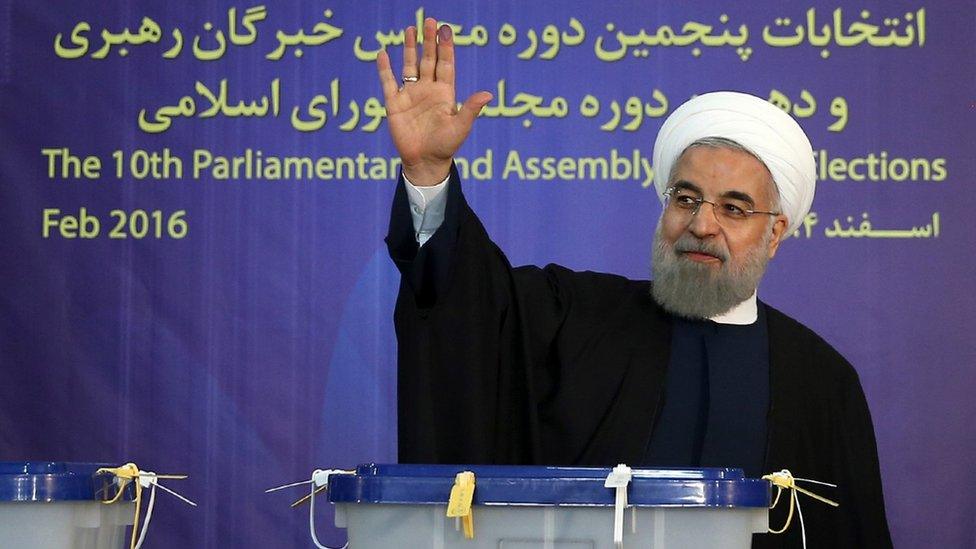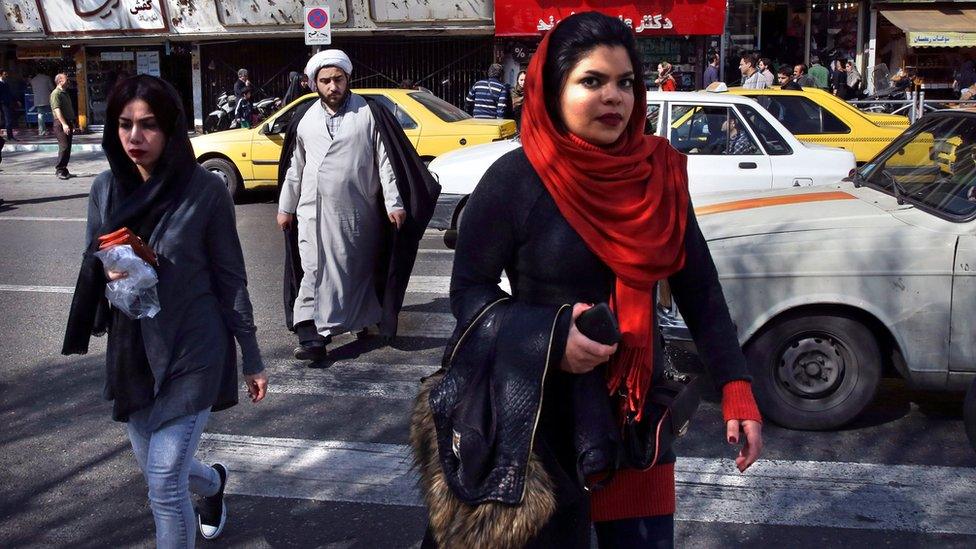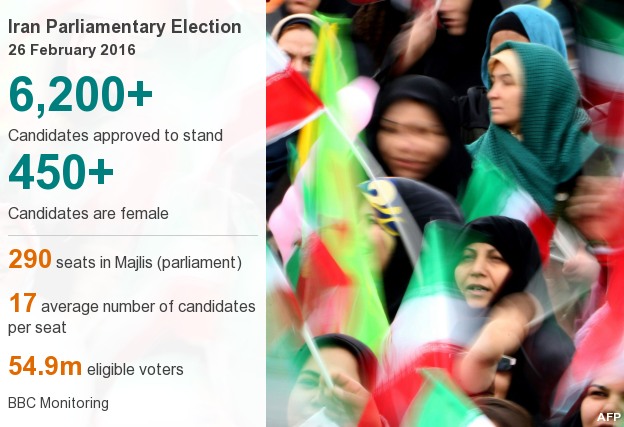Iran election: Reformists win all 30 Tehran seats
- Published

President Hassan Rouhani's allies are set to take all the seats in the capital
Allies of Iran's reformist President Hassan Rouhani have won a landslide victory in Tehran, in the first parliamentary vote since Iran signed a nuclear deal with world powers.
With 90% of the votes counted, the pro-Rouhani List of Hope is set to take all 30 parliamentary seats in the capital.
The leading conservative candidate Gholamali Haddad-Adel is in 31st place.
Millions voted on Friday to elect the 290-seat parliament as well as members of the Assembly of Experts.
The 88-member assembly appoints Iran's Supreme Leader and might end up choosing a successor to Ayatollah Khamenei, who is 76 and has suffered ill-health.
Iran elections: Five things to know
Punchy politics on social media
Early results gave former President Akbar Hashemi Rafsanjani, a moderate conservative, and Mr Rouhani the most votes for the assembly, which is composed of mostly elder and senior clerics.

Analysis: Lyse Doucet, BBC News international correspondent
This stunning election result will make a difference in Iran's engagement with the wider world.
President Rouhani's hand has been strengthened in parliament to help open his country to greater trade and investment. That will help him, and others in his reformist camp, to deepen the dialogue with the West, which began with negotiations on a landmark nuclear deal.
But much of this opening will continue to be with Europe, rather than the US. Iran's relationship with America is still complex and controversial.
Iran's ambitions in the region are also deeply rooted - it has strategic interests in countries like Syria, Iraq and Lebanon as well as Afghanistan, and a strong sense of its right to remain engaged. These are areas where Iran's powerful Revolutionary Guards and its conservative Supreme leader hold sway.
But Iran wants to be regarded as an equal partner, able to sit at the world's top tables to work on common threats like the so-called Islamic State. President Rouhani's team may now feel empowered to engage a bit more, more often.

The parliamentary result in Tehran is significant because lawmakers from the capital usually determine the political direction of the house, analysts say.
However, reformists look to have done less well in constituencies outside the capital.

The economy has been a key issue in these elections

Mr Rouhani said on Saturday that the election gave the government more credibility and clout.
"The competition is over. It's time to open a new chapter in Iran's economic development based on domestic abilities and international opportunities," the official Irna news agency quoted him as saying.
"The people showed their power once again and gave more credibility and strength to their elected government."
Voting was extended three times on Friday as crowds reportedly flocked to polling stations. Turnout was more than 60%.
Reformists, who want better relations with the outside world and more freedoms at home, were hoping to gain influence in the conservative-dominated bodies.
But of 12,000 people who registered as candidates, only half were allowed to stand, including just 200 moderates.
Young people tell the BBC what they want for their future
This was the first election to be held since last year's deal between Iran and world powers over the country's nuclear programme and the lifting of sanctions.
BBC Persian's Ali Hamedani says the economy was a key issue in the process.
With sanctions lifted and Western investors beginning to return to Iran, there are high hopes for an improvement in daily life, he says.
Reformists and moderates say they are targeting greater foreign investment which, our correspondent says, will create jobs for young people.